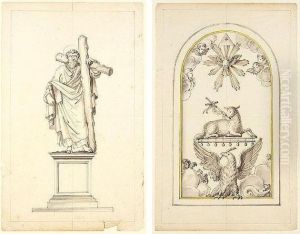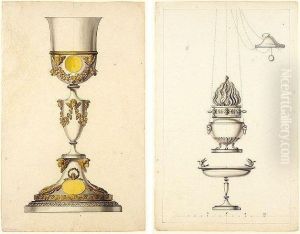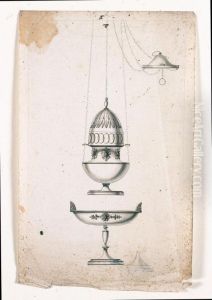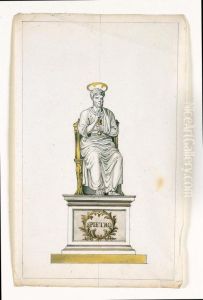Giovacchino Belli Paintings
Giovacchino Belli, also known as Giuseppe Gioachino Belli, was an Italian poet and writer, famed for his sonnets in Romanesco, the dialect of Rome. Born on September 7, 1791, in Rome, then part of the Papal States, Belli grew up in a middle-class family. Despite not being an artist in the conventional sense, his contributions to the world of literature and poetry have been significant, often capturing the essence of Roman culture and society during his time.
Belli's early life was marked by a series of personal tragedies, including the death of his mother when he was just a child and the loss of his wife and children later in life. These events had a profound impact on his worldview and his writing. Initially employed in a clerical position, Belli had access to various literary circles, which influenced his work. Although he wrote in Italian and translated works from other languages, his most enduring legacy remains the sonnets he composed in Romanesco.
His sonnets, numbering over 2,200, were written between 1830 and 1841. They are characterized by their use of humor, irony, and satire, often targeting the societal and political issues of his time. Belli's work provides a vivid portrayal of the life of the common people in Rome, their habits, speech, and beliefs, thereby documenting a vernacular culture that has undergone significant changes since then.
Despite the acclaim, Belli’s works were not published during his lifetime, as they were often critical of the Catholic Church and the social norms of the day. It was only posthumously that his sonnets were collected and published, gaining recognition for their artistic and cultural value. Today, Belli is regarded as one of the greatest poets of 19th-century Italy, and his works continue to be studied for their linguistic creativity and insight into Roman culture.
Belli died on December 21, 1863, in Rome. His legacy endures through his detailed and colorful portrayal of Roman life, offering an invaluable resource for historians and lovers of literature alike. Belli’s poetry remains a testament to the enduring power of dialect literature and its ability to capture the spirit of a time and place.



